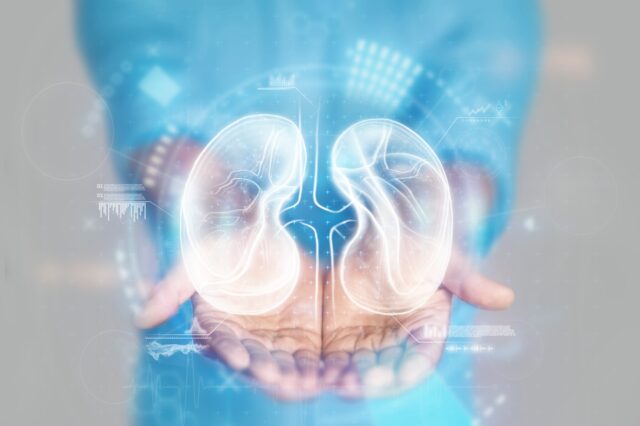UF IC3 researchers study how kidney damage progresses in hospitalized patients

Thanks to this research, health care providers may be better equipped to rapidly identify individuals who are at risk of acute kidney injury progression, improving patient outcomes.
University of Florida Health researchers have used extensive medical data and a leading-edge modeling tool to transform how health care providers observe and manage serious health conditions.
A team of UF Intelligent Clinical Care Center, or IC3, researchers that included center Director Azra Bihorac, M.D., M.S., and Associate Director of Research Tezcan Ozrazgat-Baslanti, Ph.D., evaluated records from more than 125,000 hospitalized UF Health patients to examine how acute kidney injury, a sudden and rapid loss of kidney function, progressed in adult hospitalized patients.
The group’s findings were published in October in the journal Nature Scientific Reports.
“We know that acute kidney injury is a risk factor for chronic kidney disease, which puts patients at risk of disability or an early death,” Bihorac said. “Anything we can do to prevent this in the hospital is very important.”
The team’s automated algorithm helped extract patient data from electronic health records to identify an individual’s acute kidney injury stage using serum creatinine levels, a measure of kidney function.
“Acute kidney injury is common in hospitalized patients and can negatively affect short-term and long-term health and longevity. However, the factors that govern recovery versus worsening of kidney function in the hospital are not entirely understood,” said UF College of Medicine nephrologist and clinical assistant professor Olesya Ilkun, M.D., Ph.D. “Thus, as nephrologists, we welcome tools that can help us provide timely evaluation and treatment for these patients.”
Using digital health care data collected over seven years, the IC3 group tracked when patients transitioned between acute kidney injury stages and used advanced models, known as multistate models, to describe how a disease or illness progresses.
“This is the first study that allows us to use patient-specific data collected throughout a hospital stay on a large scale to better understand how acute kidney injury evolves in this setting,” Baslanti said. “By precisely and quickly identifying patients who are at a greater risk for experiencing acute kidney injury progression, this work may help improve outcomes, aid kidney recovery or optimize how limited clinical resources are used in the hospital.”
The team also tested to see whether age, gender, race, existing health issues and the length of time a patient spends in the intensive care unit were associated with developing more severe stages of acute kidney injury.
Older adults, Black patients, those with more chronic diseases and patients who stayed in the intensive care unit longer than 48 hours were more likely to experience worse forms of the condition, which often led to kidney dialysis or even death. According to Bihorac, considering demographic information and clinical characteristics could help providers rapidly deliver targeted patient care.
For the IC3 research group, multistate models are a welcome analytic tool to highlight the complex aspects of acute kidney injury. Their continued work into understanding this medical issue may improve how clinicians make care-planning decisions and use hospital resources efficiently.
“This work provides valuable insights into the clinical trajectories of acute kidney injury among diverse hospitalized patients,” Bihorac said. “We hope for these findings to continue to add to the information available at our disposal to improve their well-being.”
Other UF IC3 collaborators on the study include postdoctoral associate Esra Adiyeke, Ph.D.; assistant scientist Yuanfang Ren, Ph.D.; system managaer and data analyst Ziyuan Guan; data analyst Matthew Ruppert; and UF IC3 and Intelligent Health Lab Director Parisa Rashidi, Ph.D.
